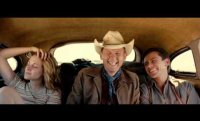Last night Steven Millhauser took the Story Prize, the annual award celebrating a short story collection published in the previous year, at a ceremony in New York City. Following readings by the author, who began his career as a novelist (a Pulitzer Prize–winning one, at that), and his fellow finalists, Don DeLillo and Edith Pearlman, Millhauser's We Others (Knopf) was announced as the selection for this year's twenty-thousand-dollar award.
Millhauser, who admits influences ranging from Dr. Seuss's And to Think That I Saw It on Mulberry Street to makers, inventors, and craftsman (including those ne'er-do-wells of his youth who revealed their secret, and unmatched, talents in woodshop), was recognized for his skill at pushing the boundaries of the imaginative process. As prize director Larry Dark noted in his onstage interview with the author, one uniting feature of Millhauser's oeuvre is the "escalation of efforts" exemplified in stories such as "Snowmen," which the author presented last night. Millhauser followed the story with a reading of a "thingamajig," which he asked the audience to regard as such, avoiding classifying the two-minute lyric romp as a "poem" or "story."
Both DeLillo, shortlisted for The Angel Esmeralda (Scribner), and Pearlman, a finalist for Binocular Vision (Lookout Books), took home five thousand dollars each. The judges for this year's award were author Sherman Alexie, translator Breon Mitchell, and Louise Steinman of the Los Angeles Public Library.
After the prizes were presented (and the authors swamped with readers seeking autographs), the evening wound down with a party for the finalists, an intimate celebration in a Greenwich Village restaurant befitting the tiny beauty of, as DeLillo put it, "the classic American form."






 What makes your reading series unique?
What makes your reading series unique?